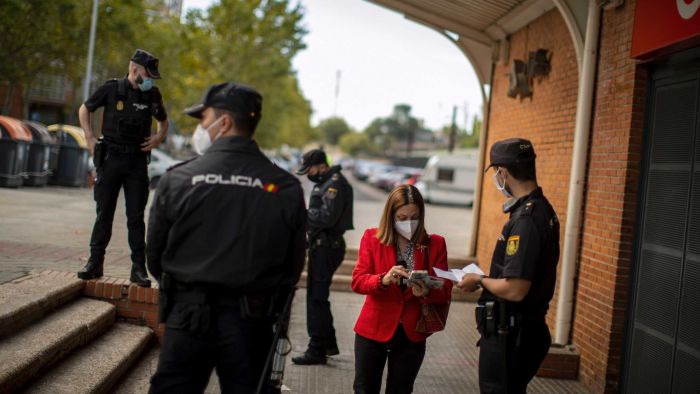The Spanish government declared a state of emergency in Madrid, taking control of efforts to combat the spread of the Corona virus from local authorities in a region witnessing one of the most important outbreaks of the Corona virus in Europe.
the main points:
- Madrid authorities were forced to reinstate travel restrictions imposed by the national government
- This comes after Madrid officials won a judicial appeal that was part of a long-running dispute between the country’s main political parties over COVID-19.
- The incidence rate in the Madrid region for 14 days is five times the European average
The move, which took effect immediately and lasted for two weeks, forced the Madrid authorities to reinstate travel restrictions that had been imposed by the national government but had been canceled the previous day by a court ruling in Madrid.
This successful legal challenge by Madrid officials was part of a long-running dispute between the country’s main political parties over their response to the coronavirus.
These differences, and the changing rules, often bothered and confused locals.
“Well, it’s all sickening,” said Vicente de la Torre, a 22-year-old Real Madrid mechanic.
The government declared a state of emergency after an emergency cabinet meeting following the court ruling.
Health Minister Salvador Illa said that the previous measures will return to effect and that only the legal framework changes.
He said it was “undeniable” that community transmission in the Madrid area, not just isolated outbreaks, was at a critical juncture as winter approached and respiratory problems increased.
The infection rate in the Madrid region for 14 days is 563 coronavirus cases per 100,000 inhabitants, more than double Spain’s national average of 256.
It’s five times the European average of 113 for the week ending September 27.

The national government had ordered the Madrid police to fine people if they left their municipality without justification. The measure includes 4.8 million residents in Madrid and nine suburban cities.
But the conservative regional government in Madrid opposed these restrictions, saying they were too harsh and harmful to the economy.
Madrid Regional President, Isabel Diaz Ayuso, said her more moderate measures are sufficient to fight COVID-19.
A Madrid court on Thursday upheld the regional government’s appeal, saying the national government’s imposition of the restrictions violated the people’s fundamental freedoms.
The dispute occurred against the background of political disagreements: the center-left Socialist Party leads the Spanish national government, while the Madrid region is run by the country’s main opposition party, the conservative Popular Party.
“they [the Spanish Government] I really don’t like the regional government in Madrid.
“We, the people of Madrid, are paying the price for a really political battle that has nothing to do with us.”
AP

Zombie specialist. Friendly twitter guru. Internet buff. Organizer. Coffee trailblazer. Lifelong problem solver. Certified travel enthusiast. Alcohol geek.

